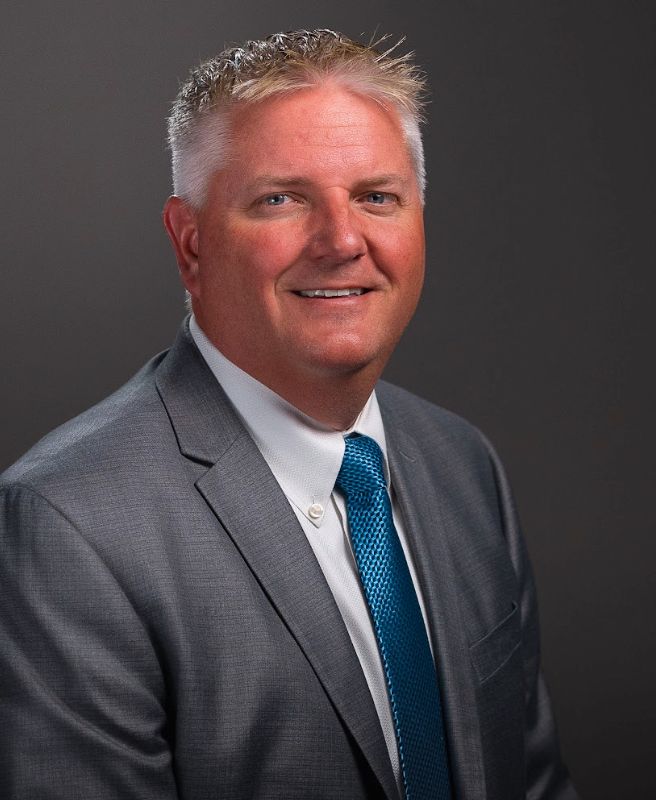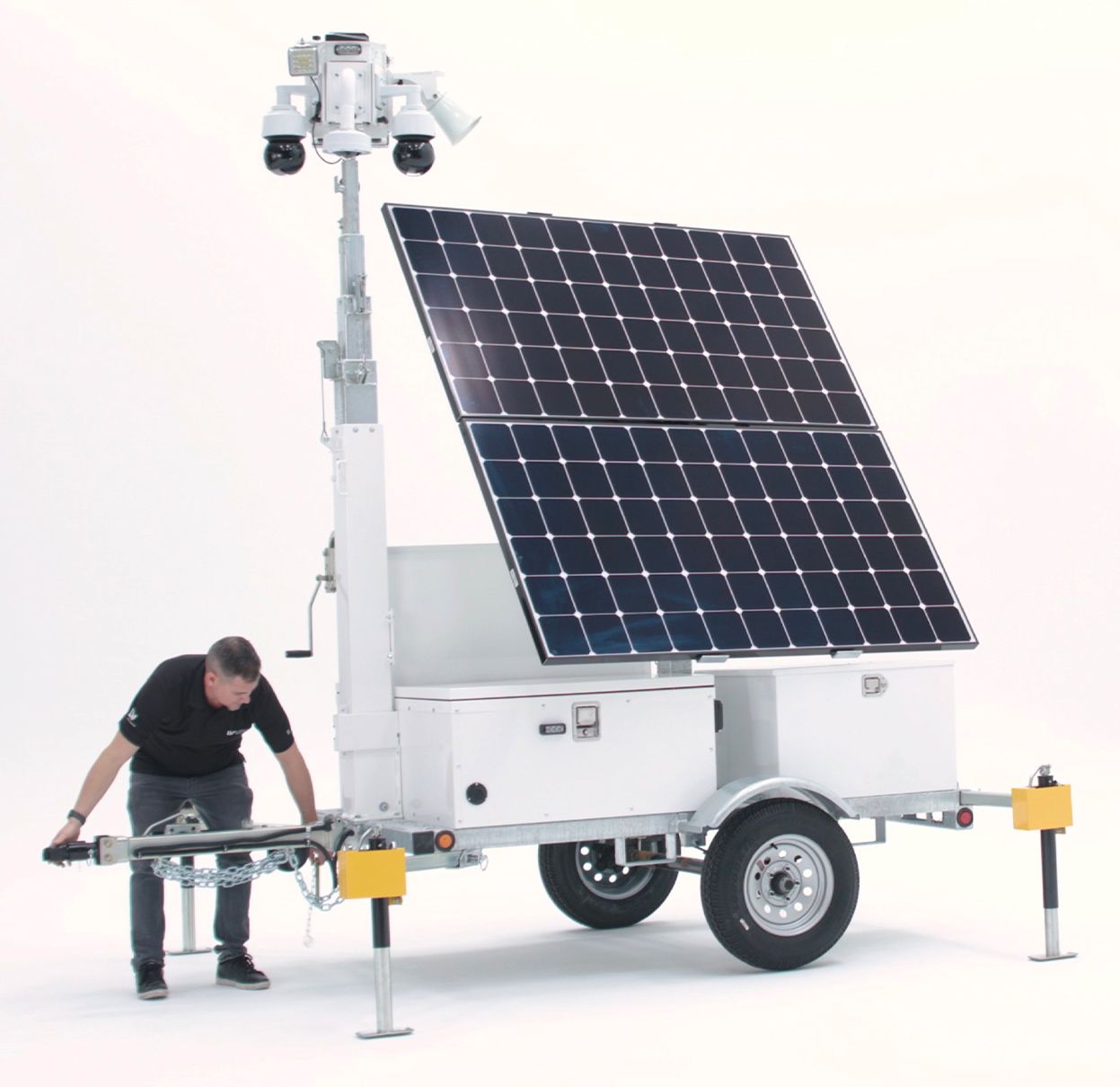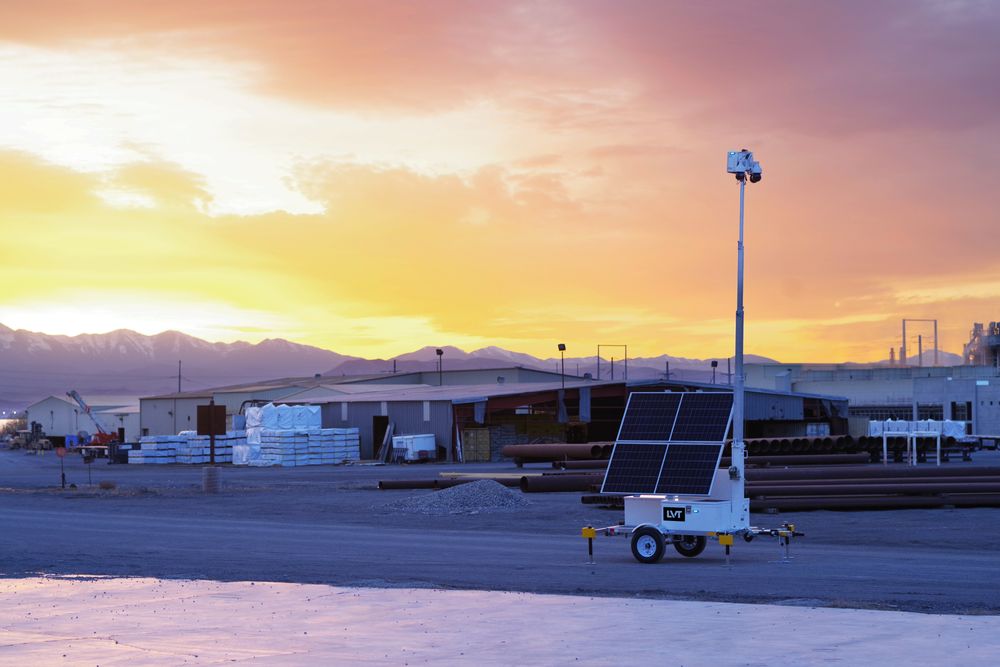Begun with a simple germ of an idea, LVT has emerged to become a rapidly growing leader in the commercial and governmental security marketplace
As someone working in construction finance back in 2005, Ryan Porter's earliest inkling of a business idea was simple: Can I provide video feeds to luxury home construction sites so banks, insurance companies, and even future homeowners can watch new residences being built? Fair enough.
Yet late last year, Orem, Utah-based LiveView Technologies (as Porter's firm is now known), found itself pulled deep into a serial killer investigation in Miami, Florida as its livestreamed footage provided dramatic evidence that led to an arrest.
In reality, what Porter and his co-founder had perceived as being a simple idea some 17 years ago proved to be anything but, as the LiveView Technologies of today works with some of the largest organizations in the world with thousands of LVT systems deployed globally.
But, I'm getting ahead of myself.
The 17-Year Climb from Lifestyle Business to VC-Backed, Cloud-centered Enterprise
By early 2007, Porter's company had begun to expand into other states with a business model focused on home sites.
Whether it was prescience or not at the impending financial onslaught of the Great Recession, the reality was that the company began working with the Utah Department of Transportation to help it more efficiently track snow conditions on Utah roads.
{NOTE: Prior to working with Porter's firm, UDOT literally sent its drivers around the state to determine if roads needed to be plowed or not. UGH! Highly, highly inefficient.}
In reality, prior to its initial meeting with UDOT, LVT did not have a system capable of operation on a location without power or internet connectivity on site.

According to Porter,
"We went to the first meeting with UDOT and they said, 'These are in really remote areas. There's no power, there's no Internet connection. Can you make that work?'
"And I said, 'Well, yeah, we can. We can make that work. We can figure it out. We haven't done it, but let's try it and see.'"
After the meeting, Porter's Co-Founder, Bob Brenner, pointed out to Porter that LVT didn't actually know how to make a truly remote system work.
But in a relatively short period of time, they learned how to implement solar panels on their security solutions, and they also transitioned away from line-of-sight radios to mostly cellular technologies for their internet and communications requirements. And it worked.
In fact, this new approach worked so well, LVT started generating interest from transportation departments in neighboring states.
"We started going with UDOT, and other DOTs from other states came to us and we started expanding there," Porter explained. "The Department of Transportation is what helped us mature as a company and start to grow through that downturn."
This transition of working with government entities was the inflection point that led the then-named Home View Technologies to change its name to LiveView Technologies.
Even still, LVT (and the entire remote security industry) was still working in the early 2010s in a pre-cloud computing world, with all of the footage stored on physical hardware, on-premise, back in the nearest office or corporate location.

Yet, in spite of the fact that LVT was still very much in startup mode, it was able to land the engineer / programmer, Steve Lindsey, who, not only became the company's Chief Technology Officer, but also the firm's fourth partner. He was also the individual who helped LVT create the software to move to the cloud.
"We were a bootstrapped company (back then)," Porter said. "It's pain, it's suffering, it's exciting, it's hard, it's everything. I mean, we literally started in my garage. When high school got out, (these kids) would come to my garage and they would build these camera systems, and then Bob and I would go out, install them on these sites. I mean, that's just how it started."
Even with the cloud and management software as key components of LVT's technology stack in the first half of the last decade, it wasn't until 2016 when the firm decided to bite the bullet and exhibit at its first trade show that things really began to accelerate for the firm.
The first day of ISC West, one of the top security trade shows in the world, LVT met the director of security for one of the largest retailers on the planet, a firm that was already reviewing bids from industry leaders for a new security system.
But these competitors were hardware-focused. They did not use the cloud. They did not have the next generation software tools in place. But LVT did.
Hence, surprising as it might seem on the surface, within three weeks, LVT went from not even being known by this firm, to landing the contract. And within a few months, it had deployed 170 of its trailer-based systems at store sites across the country.
And because the company smartly, and prominently, displayed it logos on these security trailers, LVT started getting phone calls from prospective customers, initially within the United States, but today from around the world.
LVT Today: The System and the Benefits
In 2022, most of LVT's customers opt for its truly transportable solution, a platform that is packaged in a 10-foot long, 8-foot wide trailer, with a mast that can be raised up to 22 feet off the ground.
This compact solution includes everything needed to make it totally self-contained, from
- Solar panels to batteries, plus
- High-definition cameras, including night vision variants, and
- Light and two-way sound systems, as well as
- Wireless internet connectivity for 24x7x365 video live-streaming, monitoring, and storage.
Not only is the LVT security platform available for a monthly subscription price, Porter says the firm can roll-up with one of its trailers and have it operational within 30 minutes.

During my conversation with Porter, one of the things I found fascinating was the impact these conceptually simple security systems have had in fighting and preventing crime.
"When we deploy our systems in their parking lots, there's a 70% reduction of crime in the parking lot," Porter stated. "The break-ins, the violent crimes, the drug deals that go bad, all of that reduces by 70%.
"So we've got a site for a grocery retailer in the Seattle area (where) we deployed in March of 2021. The 12 months before that, they had 15 shootings (and) three murders. The police were called in (to) that (store 672 times in a) 12-month period.
"Since we deployed in March of last year, (there have been) zero shootings, zero murders, in (that) parking lot. Like when we put our systems out, a geographic area around our system is now safer and more secure."
Porter also shared that what their data shows is that having LVT trailers deployed in retailer parking lots also results in a 55% drop in shoplifting.
When they asked convicted shoplifters why they didn't hit LVT-protected shops, their replies were telling:
"When we see those systems in the parking lot, we go somewhere else."
If we take a moment and go back to the beginning of this article with the serial killer incident, Porter described the situation this way:
"Last (December), at one of the parking lots, we had an instance where it was late at night and a person came on and they were acting really strange.
"And they came and looked at our system and looked at the camera, so we had a facial shot of them. Well, they went over and shot a homeless person in the head and the person ended up surviving. But we got a call from the police department and they said, 'Hey, this happened. Can you pull the footage?'
"We pulled the footage, we gave (the video) to them, and 48 hours later (from our footage and the pictures that we had), they arrested the person, which was a serial killer in the area that was going around killing homeless people."
From Bootstrapped to $50MM in VC Backing
As LiveView Technologies' security offerings have improved, so too has its deployments, both across industries and into new geographies.
Such success has also attracted interest in the investing community, as LiveView recently announced it had landed $50 million in a Series B round of funding.
This funding round was led by Lehi, Utah-based Sorenson Capital, with other investors including Sandy, Utah-based The Larry H. Miller Group, as well as previous investment partners, Lead Edge Capital, and Pelion Venture Partners.
“LVT’s mission is to make the entire world safer and more secure. While theft-related savings and real-time site awareness are a significant benefit for many of our customers, preventing violent crime and saving lives are the most important goals of our company, and at the forefront of everything we do,” Porter said in the funding news release. “Our accelerated growth is a testament to the solutions we work tirelessly to provide, the value we place on forging strong partnerships with our customers every day, and the belief that we are realizing our mission one safer community at a time.”
LVT works today with organizations as diverse as grocery store giant Kroger and the Kansas City Chiefs of the National Football League, with over 6,000 of LVT's security trailers deployed around the world.
And prior to this most recent funding round, LVT grew over 540% in 2021.
Clearly, this is not the same company started almost on a whim back in 2005.



